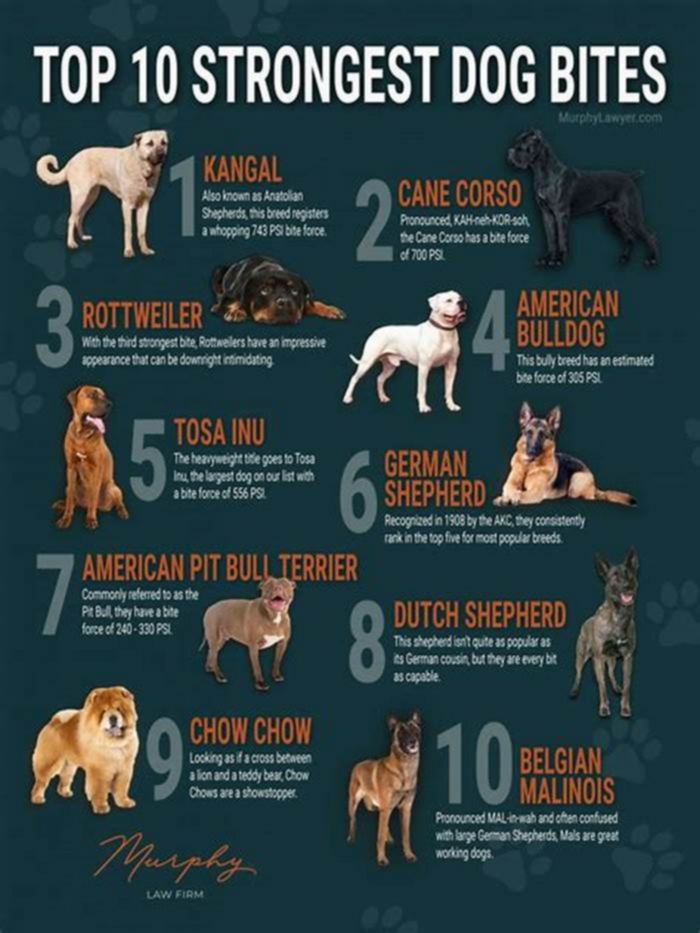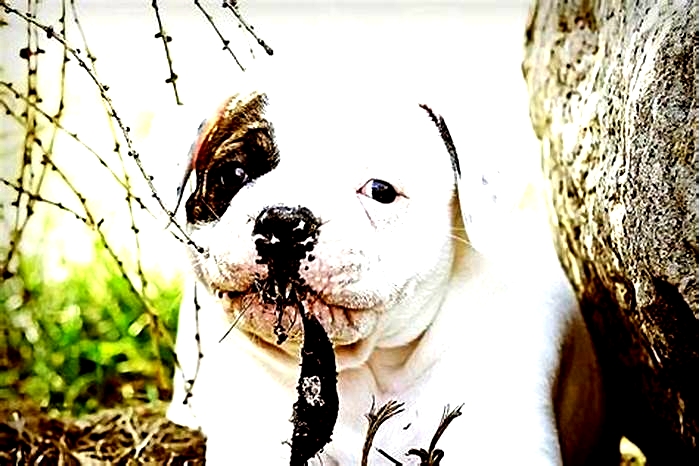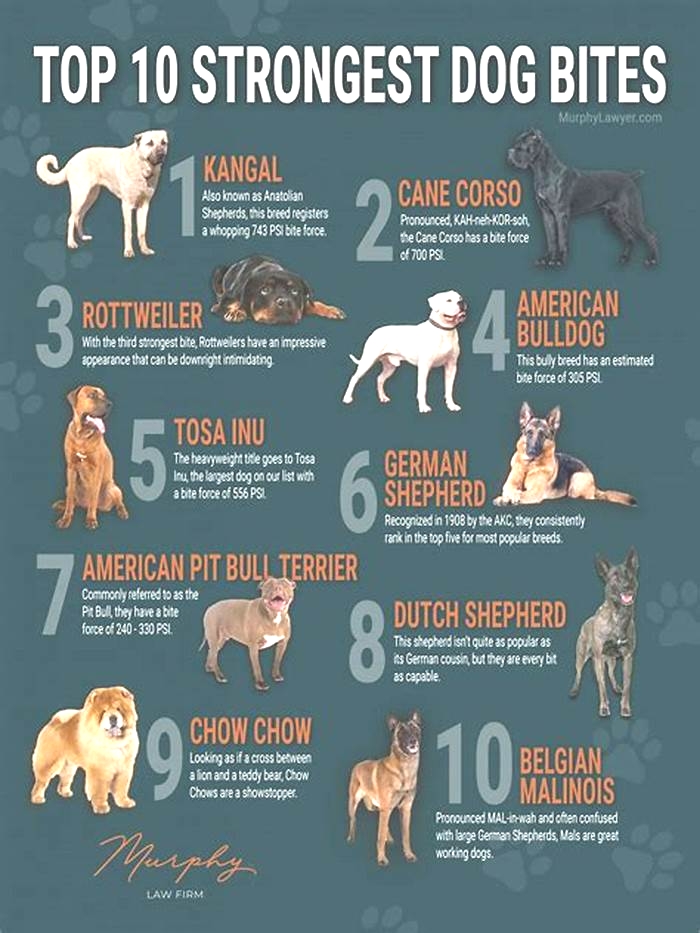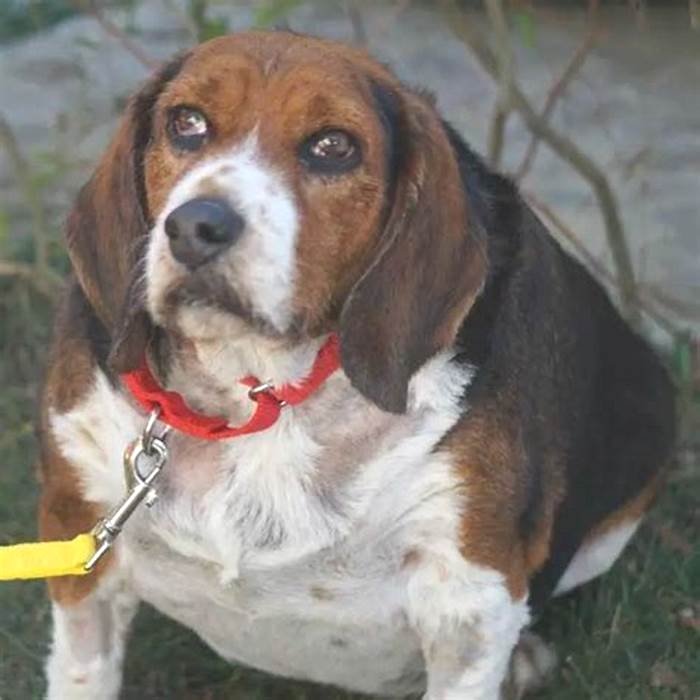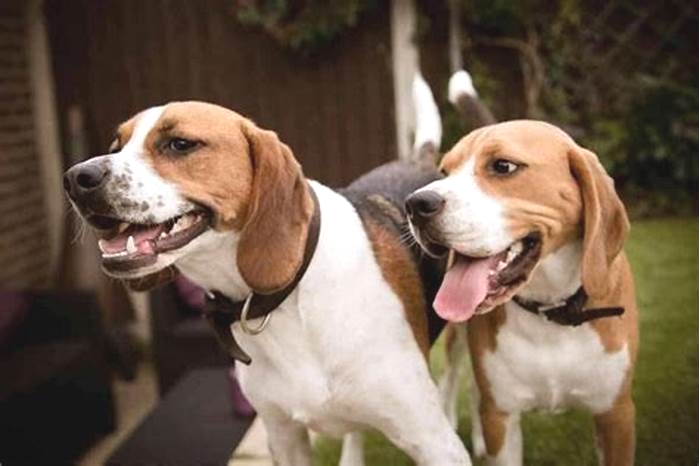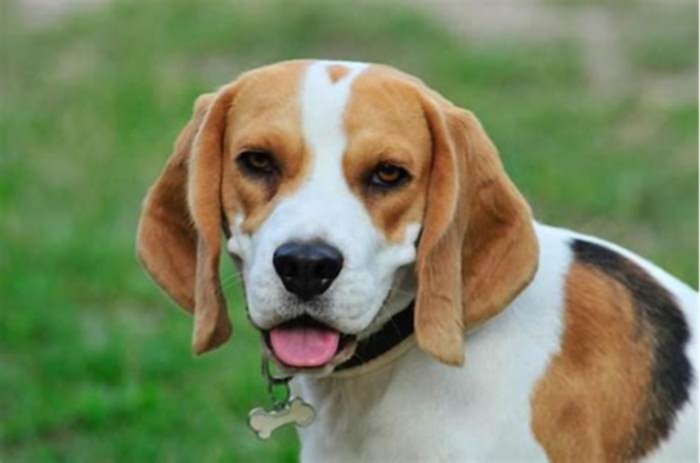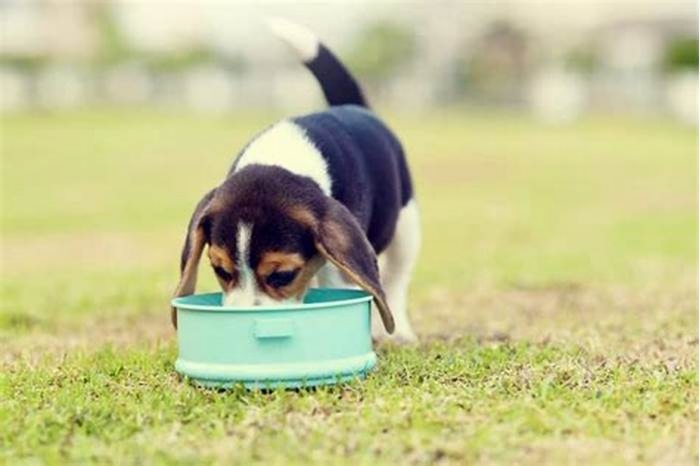Why do Beagles bite so much
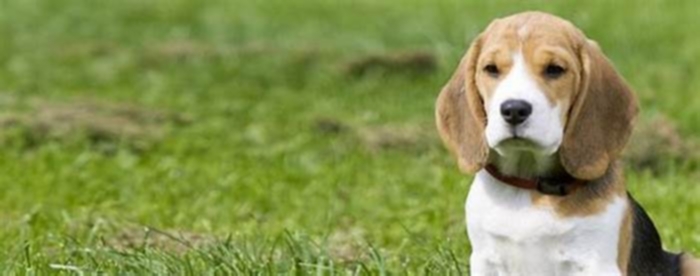
Why Do Beagles Bite So Much? Unraveling the 5 Reasons Behind this Behavior
Beagles, with their playful nature and affectionate demeanor, are cherished companions for many families. However, some Beagle owners may encounter a common behavior challenge excessive biting. In this article, we delve into the reasons why do Beagles bite so much and explore effective strategies to manage and redirect this behavior.
5 Reasons Why Do Beagles Bite So Much
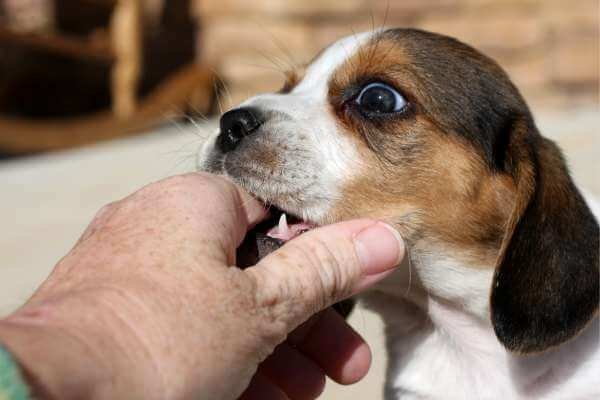
- Teething and Exploration: Like all puppies, Beagles go through a teething phase during which they may chew and bite to alleviate discomfort. Additionally, Beagles are naturally curious and use their mouths to explore their environment. Understanding that biting is often an instinctual part of their teething process and exploration can help manage expectations.
- Playful Behavior: Beagles are playful and energetic dogs. Biting can be a form of play for them, especially when interacting with family members or other pets. Teaching appropriate play behaviors and providing alternative outlets for their energy can redirect this behavior.
- Communication and Attention-Seeking: Beagles are social animals and may use biting as a form of communication or to seek attention. If they feel lonely or want interaction, they may resort to gentle nipping. Encouraging positive interactions and spending quality time with your Beagle can address attention-seeking behaviors.
- Herding Instincts: Beagles have a history of hunting and tracking dogs with herding instincts. In some cases, biting may be an expression of their herding nature. This behavior can be redirected through training and providing appropriate outlets for their energy.
- Fear or Anxiety: Biting can also be a response to fear or anxiety. Beagles may resort to biting as a way to communicate discomfort or unease. Identifying and addressing the root cause of their anxiety, whether related to new environments, unfamiliar people, or loud noises, is crucial for behavioral modification.
Effective Strategies to Manage Beagle Biting:
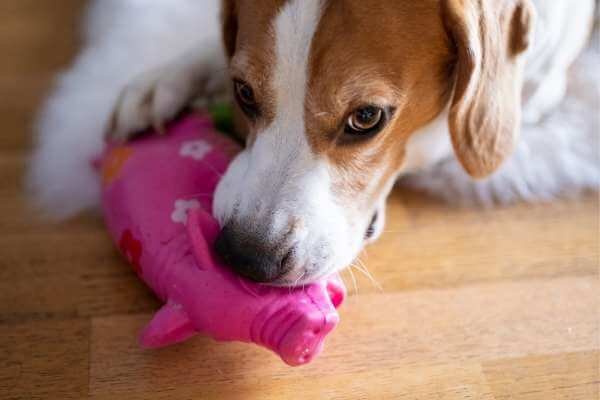
- Early Training: Start training your Beagle from an early age to establish clear boundaries and expectations. Positive reinforcement techniques, such as rewarding good behavior, can be effective in discouraging biting.
- Provide Chew Toys: Offer a variety of chew toys to satisfy their teething needs. Redirecting their biting behavior towards appropriate items can prevent damage to furniture or belongings.
- Regular Exercise: Beagles are an active breed that requires regular exercise to expend their energy. Ensure they receive sufficient physical and mental stimulation through walks, playtime, and engaging activities.
- Socialization: Expose your Beagle to various environments, people, and other pets to promote positive socialization. This can reduce anxiety and help minimize biting behaviors triggered by fear or unfamiliarity.
- Consistent Reinforcement: Be consistent in reinforcing good behavior and discouraging biting. Avoid encouraging rough play that may escalate into biting and provide gentle corrections when necessary.
Chew toys bestsellers
Why does my beagle randomly bite me?
When Beagles resort to biting as a form of self-defense, there are typically accompanying indicators like mistrust, anxiety, pain, and fear. Dogs usually bite in self-defense only after providing warnings, but these signs are often overlooked by most individuals.
Are Beagles naturally aggressive?
Beagles are recognized for their hunting instincts, and they may pursue squirrels, cats, or other small creatures. Although they typically display non-aggressive behavior towards other dogs, they might engage in confrontations if they perceive a challenge to their dominance.
At what age does a beagle calm down?
Beagles typically start to calm down around 4-5 years old, with noticeable changes in energy levels and obedience skills occurring between 12-18 months and 2.5-3 years old
Do dogs remember if they bite someone?
Dogs generally have a memory of events, including interactions and experiences. However, the extent to which a dog remembers an incident, such as biting someone, can vary. Dogs have a shorter-term memory compared to humans, and their recollection is often influenced by the significance and emotional impact of the event.
If a dog has bitten someone, it is more likely to remember the associated circumstances and emotions rather than the specific act itself. Factors such as the dogs temperament, the context of the bite, and the actions taken afterward can influence how the dog perceives and remembers the event.
Its important to note that a dogs memory is not equivalent to human memory, and their behaviors are also shaped by immediate stimuli and ongoing training. Professional intervention, positive reinforcement training, and addressing the root causes of the biting incident are crucial for preventing future occurrences and ensuring a positive relationship between the dog and its human companions.
Conclusion of Why Do Beagles Bite So Much

Understanding the underlying reasons for Why Do Beagles Bite So Much Behavior is essential for effective training and fostering a harmonious relationship. With patience, consistent training, and positive reinforcement, Beagle owners can guide their furry friends toward appropriate behaviors, ensuring a happy and well-behaved canine companion.
Beagle Biting | Why Do Beagles Nip, Bite and Chew
Is your Beagle biting you or your family or chewing things it should not be ? Are you tired of your beagle puppy nipping at you for no apparent reason (theres always a reason)? Im going to help you understand some of the reasons why your beagle may be biting you and provide tips to stop your beagle biting, nipping and chewing.
Do Beagles Bite?
Yes, like most dog breeds, beagles will bite, nip and chew. Its down to you to try and work out if its bad behavior or a genuine reason, either way, dont despair, with time and patience both issues can be resolved. Training your beagle to not bite is a worthy investment for you and your dog.
To give some context to the strength of a beagles bite, a beagles bite force is around 200 pounds per square inch (PSI). This is significantly more than the average humans bite, which has a force of only 120 PSI.
Needless to say, you dont want a beagle or any dog to bite you!
Difference Between Beagle Biting, Nipping and Chewing
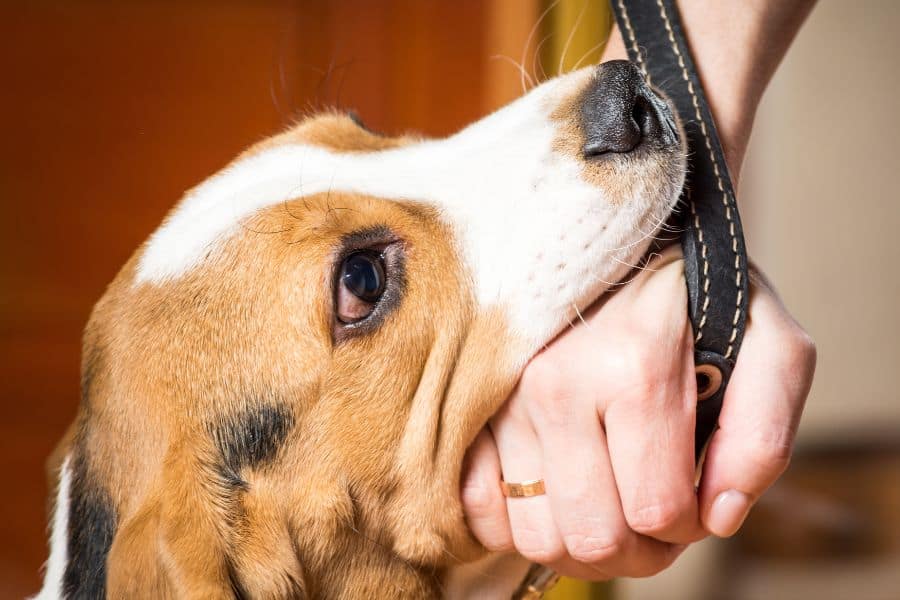
To know how to resolve the issue of your dog biting, its a good idea to understand what your dog is actually doing when it uses its teeth on humans or items.
Lets clarify what we mean by biting, nipping and chewing. Biting and nipping are similar, in that your beagle is using its teeth to communicate with you (yes, you read that right). A beagle will use its teeth to either fully bite down on your skin or lightly nip you. Either way, you dont want to allow this behavior unless your beagle knows its boundaries.
- A bite tends to be more aggressive, and is a sign that your dog is not comfortable with something.
- Nipping can be attributed to many things, such as a sign it is playing, or an early warning to something to follow.
- Chewing, even if its chewing on you or items, can be a sign of discomfort or anxiety or having fun.
I am going to talk about beagle biting and nipping issues in this article as this tends to be the issue that needs to be resolved most urgently, though I will touch on beagle chewing issues.
Reasons Why a Beagle Might Bite?

Beagles are generally a friendly and amiable and tolerant dog breed. So, when a beagle uses its teeth to bite its likely to have a good reason to do so. From their point of view, every time they bite its because they feel its their only option. We need to train the dog when biting, to know what good and bad behavior is.
More often than not aggressive biting is learned behavior from the environment they live in and in most cases your beagle will want to learn to change the unwanted behavior so that they can please you, they just need you to teach them whats acceptable and not.
A Beagle might bite for a number of reasons, including;
- Teething
- Play biting
- Fear or separation anxiety
- Pain or discomfort
- Aggression
- Test boundaries
- Territorial behavior
- Possessiveness
- Socialization issues
- Provocation
- Lack of stimulation, including not having enough exercise.
Teething In Beagle Puppies

Teething in dogs is much the same as it is in developing human babies and children and occurs when new teeth are first starting to form or grow in the dog or human mouth.
Teething times in beagles can vary but usually occurs between 4-8 months old and can be frustrating for your puppy as they deal with the discomfort and pain of the growing teeth.
So what does teething have to do with puppy biting? Simply put, during teething a puppy may chew or nip to relieve discomfort in its teeth and gums. Whether that is by chewing on your hand, arm or a toy, even licking, your puppy will try to find a way to soothe the pain.
Dont be tempted to let your puppy bite you at this stage, even if those little, needle-like teeth dont hurt you. By distracting them from biting you at this early stage sets a precedent that biting or even nipping you is not acceptable.
You can give your beagle puppy specific teething toys for them to chew on, much better than human skin or your best furniture and clothes.
Tips for a Teething Puppy include
- If you find your puppy chewing on something they shouldnt, clapping your hands loudly and giving a firm No command can redirect the puppys biting behavior.
- Replace inappropriate items like clothes, feet, or hands with toys to show the puppy what is acceptable to chew.
- Cold or warm objects can help numb the gums and reduce discomfort during teething.
- Adding flavor to ice cubes with low-sodium chicken broth can create a tasty teething treat for the puppy.
Beagle Play Biting

The first 8 weeks of a beagle puppys life will be spent with their littermates, playing, eating, pooping and sleeping. Play biting with littermates is common and serves as a learning experience for all of the puppies in the litter.
In these first weeks a puppy learns valuable lessons about bite inhibition. If a pup bites too hard its littermate will yelp loudly, followed by a short period where he ignores the puppy that bit too hard. This is the point that the pup that bit too hard learns that it is not always a game and that is has overstepped a boundary.
Once the puppy has left its littermates it still needs that guidance, it hasnt stopped learning and will need you to carry on giving feedback when the puppy bites too hard or too much.
To address excessive biting during play, owners can mimic the response the puppy is used to when with its littermates: let out a loud Ouch and withdraw from playing for a minute or so.
This withdrawal from interaction helps convey that biting results in zero attention, reinforcing that it is not an acceptable behavior.
Here are some ways you can discourage your beagle from play biting;
- Use a toy and encourage to play and bite with that instead of nipping at you.
- Handling your dog will let them know that its safe for you to touch them and less likely for it to bite you when playing.
- Offer treats as an alternative for them to bite on, antlers are a great chew toy.
- Use treats to reward good behavior. Try short training sessions of a few minutes to encourage new behavior.
- Use specific chew toys to help with teething issues, such as ice cubes or a carrot.
Fear or Separation Anxiety
Separation anxiety is where your beagle becomes anxious when you leave them alone, even for short periods of time. Not all dogs will experience separation anxiety but if they do it can manifest as nipping at you when they sense you are about to leave. Nipping you is a way of telling you not to leave them alone.
Separation anxiety should be dealt with as soon as possible before it becomes much worse.
Pain or Discomfort
Much like when your beagle is teething, if your dog is in pain or discomfort they may lash out and nip, or even worse bite. Biting you is the last thing they want to do, so if you suspect they are in pain then consult with a veterinarian as soon as possible.
I remember trying to bathe my Beagles paw to relieve the pain from an injury, only for her to let out a low growl as to warn me not to touch the sensitive spot. With the help of my partner we managed to bathe the wound while my partner fed her small treats to distract her, while gaining my dogs trust that I was not going to hurt her.
Aggression
As previously mentioned, Beagles are a friendly, amiable and tolerant dog breed, so its rare for them to be aggressive for no reason.
If a Beagle is aggressive for no apparent reason (pain etc) then its likely due to learned behavior, such as being abused and mistreated. Even then, in the face of unspeakable abuse (beagles are often used in animal testing labs) they are not likely to become aggressive and bite.
A Beagle may still show signs of aggression and bite if they have not been properly socialized, testing boundaries, being provoked, in pain or working out who is the alpha dog of the house (territorial behavior).
Possessiveness

Though rare, a Beagle might nip or bite if you attempt to take its prized toy or food item.
Of the four Beagles I have raised, only one has ever shown some kind of aggression over possessiveness. Baylee (my 4th Beagle) will growl if I attempt to take a tasty treat from her, or her favorite toy, which she so lovingly carries around with her.
When she growls, I know to step back and leave her alone. If I need to take something from her that she is guarding, but she shouldnt have, then Ill have to exchange the item for something else that she values. If i get bit in this situation its totally my fault for not handling her properly and heeding her warning.
Dealing with a Beagle Biting and Nipping
The Redirect the Bite method
The redirect the bite is a simple method to stop a dog from biting you when playing. The first step is to redirect the dogs attention to something else, such as playing with a toy.
Once the bite has been redirected, you reward the dog for good behavior so that they understand that by not biting you they get a reward.
The key to this kind of training is consistency and patience, but the rewards for you and your dog are worth it.
What Not to Do if Your Beagle Bites You
If your beagle bites, you must not hit your dog or shout aggressively, this will only make the situation worse.
The reason shouting or hitting your dog will not work is because you are giving your dog attention, even if it is negative attention. The best thing to do if your beagle is biting or nipping too hard is to calmly walk away from your dog and do not show any signs of attention.
If they are biting you as a sign of dominance or aggression, then you will need to work on this behavior with someone who understands how to deal with aggressive and dominant dogs.
A quick tip for a beagle trying to dominate you is for you to stand up tall and face your dog and stay calm and use your legs and knees to stop your dog from trying to jump up at you and use a stern No, they should back down. If their behavior is more aggressive, walk away and leave them alone for a while and seek professional help to resolve the unwanted behavior.

